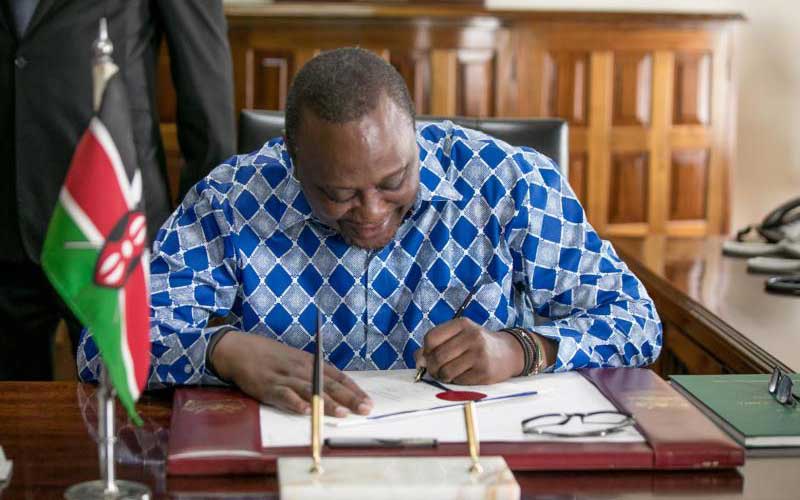×
The Standard e-Paper
Join Thousands Daily

President Uhuru Kenyatta signed into law the Kenya Roads Board (Amendment) Bill, 2019 that paves way for the government to seek a Sh800 billion infrastructure bond in four years.
The law will now give the board powers to seek the funds to allow the Jubilee government deliver on its pledge of constructing 10,000km of roads by 2022.